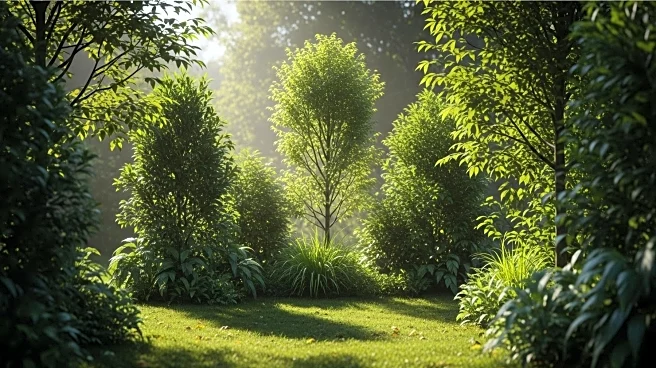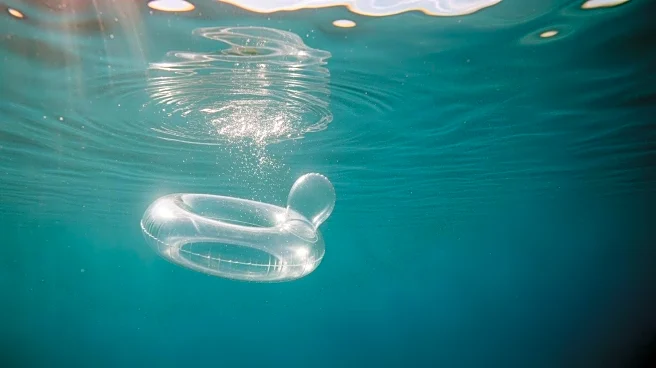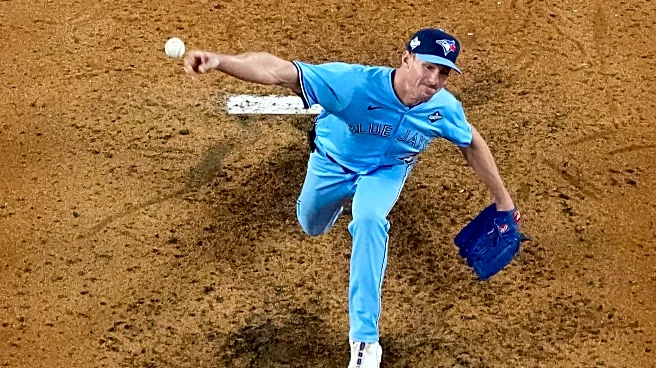What's Happening?
The Muskegon Lake Nature Preserve is developing a micro forest as part of its efforts to enhance local biodiversity and environmental education. The project involves creating a simulated forest floor using compost, cardboard, and woodchips, which will be left to decompose over six months before planting native trees and shrubs. The initiative is led by John Noling, a community member and former schoolteacher, and involves collaboration with local organizations and schools. The micro forest aims to provide habitat for wildlife, reduce noise pollution, and combat climate change by sequestering carbon dioxide.
Why It's Important?
The introduction of a micro forest at the Muskegon Nature Preserve is a significant step towards promoting environmental sustainability and biodiversity. By creating a dense planting of native species, the project supports local wildlife and enhances the ecological health of the area. It also serves as an educational tool for the community, particularly students, to learn about environmental conservation and the importance of preserving natural habitats. The project aligns with broader efforts to address climate change and improve urban green spaces.
What's Next?
The preserve will host a community service event on October 18 to prepare the site for planting. Volunteers from the community, including students and local organizations, are encouraged to participate. The planting phase is expected to begin in the spring, with ongoing maintenance and monitoring to ensure the success of the micro forest. The preserve will continue to seek donations and support to fund the project and expand its environmental education programs.











